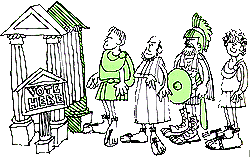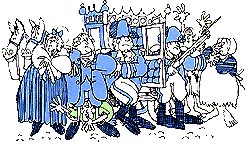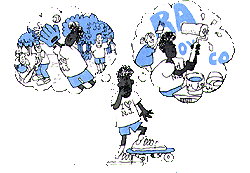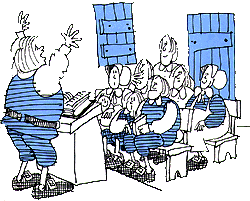This lesson is from the first edition of We the People: The Citizen & the Constitution, Level 1, for upper elementary students. For sample lessons from the latest edition, please click here.
Student Book
Purpose of Lesson
This lesson will help you understand why the Founders thought a republican form of government was best. You will also learn about civic virtue and the common welfare.
The Founders Studied History
The Founders studied the history of governments. They were very interested in what they read about the government of the Roman Republic. It was located in what is now the country of Italy. The Roman Republic existed more than 2,000 years before our nation began.
The Founders liked what they read about the Roman Republic. They learned some important ideas from their study of the government of ancient Rome. They used some of these ideas when they created our government.
What is a Republican Government?
The government of Rome was called a republican government. The Founders read that republican government was one in which:
- The power of government is held by the people.
- The people give power to leaders they elect to represent them and serve their interests.
- The representatives are responsible for helping all the people in the country, not just a few people.
Vocabulary Terms
- Representatives: people elected to act for others
- interests: those things which are to a person's benefit

What are the Advantages of Republican Government?
The Founders thought a republican government was the best kind of government they could choose for themselves. They believed that the advantages of republican government were:
- Fairness. They believed that laws made by the representatives they elected would be fair. If their representatives did not make fair laws, they could elect others who would.
- Common welfare. The laws would help everyone instead of one person or a few favored people.
- Freedom and prosperity. People would have greater freedom and be able to live well.

What is the Common Welfare?
When a government tries to help everyone in a country, we say it is serving the common welfare. The common welfare is what is good for everyone in the country, not just a few people.
Problem Solving
Your Interests and the Common Welfare
How do you decide what the common welfare is? When should you give up your own interests to do something that is good for everyone? Each person has to answer this question for himself or herself. The following exercise will help you do this.
Work in groups of about three to five students. Each group should discuss the following questions. Be prepared to explain your group's answers to the class.
- Describe a situation in which you think you should try to help others instead of just doing what you want for yourself.
- Explain a situation in which you think you should do something for yourself instead of trying to help others.
- Sometimes people disagree about what is the best thing for everyone. Describe a situation where this might happen. How do you think such disagreements should be settled?
- Describe some things your government does to help everyone in the country. What other things could your government do? Why?

What is Civic Virtue?
When you work to help others and promote the common welfare, you are showing civic virtue. The Founders thought civic virtue was important for a republican government. People with civic virtue are interested in having the government help all the people.
The Founders thought it was necessary to teach children the importance of helping others. Young people learned about civic virtue in their homes, schools, and churches. Adults also heard about civic virtue from their religious and political leaders.
The Founders thought a republican government would work in our country. They believed most of the people had civic virtue. They thought the people would select leaders who would work for the common welfare.
Reviewing and Using the Lesson
- What is republican government?
- Define "common welfare." Give examples of how your school helps the common welfare.
- Define "civic virtue." Give examples of people with civic virtue in your school and community.
- Where was civic virtue taught in early America?
- Describe a situation in which your interests might conflict with the common welfare.
- Explain these terms: republican government, representative, interests, common welfare, civic virtue.

All rights reserved. Permission is granted to freely use this information for nonprofit educational purposes only. Copyright must be acknowledged on all copies. The development of this text was originally funded and cosponsored by the Commission on the Bicentennial of the United States Constitution. The US Department of Education disclaims the responsibility for any opinion or conclusions contained herein. The Federal Government reserves a nonexclusive license to use and reproduce for governmental purposes, without payment, this material where the government deems it in its interest to do so.
ISBN 0-89818-169-0





